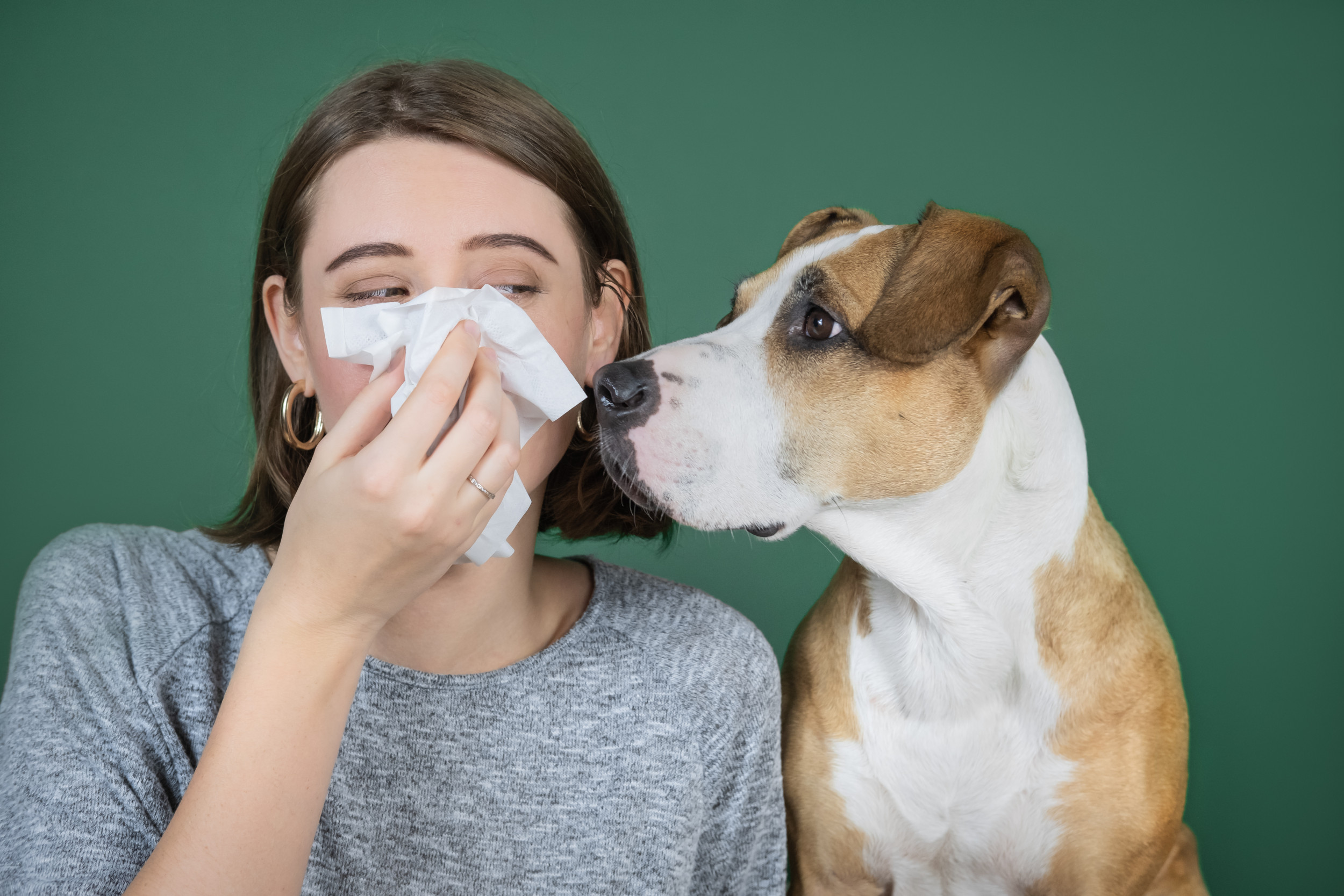We might be passing our illnesses to our pets more than we think, scientists have found.
Pets that have close contact with their owners, including sharing a bed, snuggling and eating in the same areas as humans, are at risk of catching diseases from their owners. This is according to a new paper in the journal Zoonoses: Infections Affecting Humans and Animals.
Diseases that pass between other species and humans are known as zoonoses, with over 60 percent of human pathogens being zoonotic in origin. Reverse zoonosis is when humans pass our diseases to animals. This discovery highlights that, while animals can pass their diseases to us, such as bird flu, swine flu and COVID-19, we can also infect them in return.
“We're starting to see a lot of examples of reverse zoonosis. Pets are more susceptible than, maybe, we previously thought,” paper author Benjamin Anderson, an assistant professor at the University of Florida's College of Public Health and Health Professions, said in a statement.
In the paper, the authors describe how pets can catch several diseases from their human owners, ranging from swine flu, human norovirus, COVID-19 and tuberculosis to dengue, fungal infections and parasites. These were mostly seen between humans and dogs or cats, but a few were also reported between humans and horses, ferrets, and even parrots.
Diseases are usually specific to certain species, as the pathogen will need to have certain structures to bind to and enter an animal's cells.
“Typically, the viruses that I will have as a human are not going to fit into the receptors that a dog or cat has,” Anderson said.
However, sometimes a pathogen will mutate to have a structure that allows it to enter the cells of another species, enabling the disease to jump between the two species. Viruses like flu and COVID-19, among others, are prone to mutate frequently due to the fact that they contain RNA rather than DNA.
RNA and DNA are checked for mutations by enzymes inside our cells, but the RNA checker enzyme is less accurate than the DNA proofreading enzyme. It means that RNA virus mutations are seen more frequently, and therefore RNA viruses can evolve to jump species at a faster rate.
More closely-related species are more prone to having diseases jump between them, which is why zoonosis and reverse zoonosis often happen between mammals. However, sometimes the pathogen mutates enough to jump even that gap, spreading between mammals and birds, or even reptiles.
The authors hope that this paper highlights the dangers of reverse zoonosis, and can help inform veterinarians as to the source of certain illnesses.
“When you see a human in the clinic, you can ask questions like whether they were around any animals, or if any of their pets were sick. But when you get an animal that's sick, you may not always be able to get that kind of information to link it back to a human case,” Anderson said.
Reverse zoonosis can also endanger humans, as it provides another channel for diseases to spread, amplifying an epidemic. Pigs in particular could be infected by both human flu and bird flu, and therefore serve as a mixing pot for new viruses that could end up as a new pandemic, the study authors say.
“While pathogens certainly can move from animals to other animals and can be picked up from the environment, exposure to humans also plays an important role. It's this constant back-and-forth exchange that happens over time, increasing the probability of a mutation taking place that allows the pathogen to infect a new host,” Anderson said.
Animals being involved in the spread of human diseases makes it more complicated to track infections, especially because animals don't often exhibit symptoms. The authors encourage people who are unwell, especially those with flu or COVID-19 infections, to avoid close contact with their pets. However, for those with a strong bond with their pet, or those with a service animal, this is not always possible. In this case, avoiding the pet coming into contact with any body fluids such as sneezes or snot is encouraged.
“We have the diagnostic tools to track many different pathogens in both human and veterinary medicine, but not always the resources to see them used as broadly as is necessary to understand all of the epidemiological trends. In particular, we need greater testing among animals.” Anderson said.
“I think it's important to know not just about the human health issues, but also have a more complete picture as to what's actually happening out in the environment,” Anderson said.
Do you have a tip on a science story that Newsweek should be covering? Do you have a question about animal diseases? Let us know via science@newsweek.com.
ISTOCK / GETTY IMAGES PLUS
Uncommon Knowledge
Newsweek is committed to challenging conventional wisdom and finding connections in the search for common ground.
Newsweek is committed to challenging conventional wisdom and finding connections in the search for common ground.





